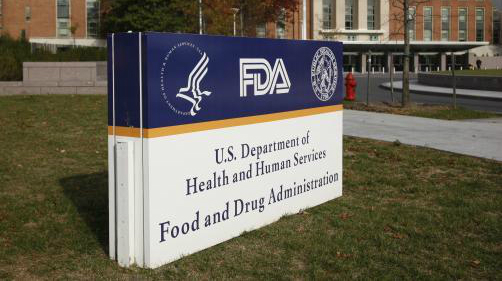FDA panel unimpressed with data for Alzheimer’s drug aducanumab

The FDA may have been minded to approve Biogen and Eisai’s Alzheimer’s candidate aducanumab, but its clinical advisors have little doubt that the evidence for the drug is lacking.
The much-anticipated advisory committee meeting held on Friday to discuss the marketing application for aducanumab proved to be a fractious affair, with both the companies’ data – and some of the FDA’s interpretation of it – under fire by panellists.
After hours of debate, the verdict from the experts was pretty unequivocal – 10 panellists voted against the main study supporting the drug, with just one saying they were uncertain about the data. Not one was convinced that the clinical trial results proved that the drug was effective.
The resounding rejection of the clinical data submitted in support of the marketing application for aducanumab came after the FDA published briefing documents that indicated the agency’s clinical reviewer was in favour of approval, calling the results “persuasive” despite a fairly damning assessment by the agency’s statistical expert in an appendix.
Aducanumab is vying to become the first Alzheimer’s drug designed to tackle an underlying cause of the disease, and the first new treatment for the neurodegenerative disease in almost two decades.
The FDA has been working closely with Biogen on the application and could still decide to approve the drug despite its experts’ reservations. That said, the balance of the votes makes that outcome unlikely – despite impassioned testimony during the virtual meeting by patient organizations.
The agency is due to make a decision by 7 March, and a review is also underway at the European Medicines Agency (EMA). Analysts have predicted it could become a multibillion-dollar blockbuster if approved, although at the moment that looks unlikely without another clinical trial.
An approval could also be seen as vindication for the hypothesis that tackling the amyloid plaques that are seen in the brains of people with the disease helps to slow the onset of symptoms. Many people had given up on the hypothesis after dozens of failed studies involving anti-amyloid drugs.
Biogen ran two identically-designed phase 3 studies of aducanumab – EMERGE (Study 302) and ENGAGE (Study 301) – to try to demonstrate that the anti-amyloid antibody could slow down the loss of cognitive function in people with mild cognitive impairment due to Alzheimer’s.
Last year, it called a halt to the studies after a futility analysis found it unlikely that aducanumab would show an effect on cognitive decline, but a few months later said that EMERGE was positive after all, and would form the basis of a marketing application with a phase 1b extension study – called PRIME – used as supportive evidence.
After a positive discussion of the results from Billy Dunn, acting director of the FDA's office of neuroscience, the panel voted on three aspects of the data set.
In the first, they came down 8 to 1, with 2 uncertain, that the EMERGE trial could not be viewed on its own as providing strong evidence supporting aducanumab’s efficacy without taking into account the negative ENGAGE data.
They then voted 7 against and 4 uncertain on a question asking whether PRIME provide supportive evidence of the effectiveness of aducanumab in Alzheimer’s, before rejecting the premise that EMERGE could serve as primary evidence supporting the efficacy of the antibody.
Overall, the conclusion was that a negative interpretation of the data is just as likely as the positive one put forward by the trial sponsors, with one suggesting Biogen had shot first, and painted a bullseye later.
Biogen issued a short statement after the meeting in which CEO Michel Vounatsos said: “We appreciated the opportunity to share our data with the advisory committee, and we will continue to work with the FDA as it completes its review of our application.”
Trading in the biotech’s stock was halted ahead of the advisory committee meeting, but looks likely to be under considerable pressure when it resumes as it has been fluctuating wildly in reflection of the fortunes of aducanumab.
Biogen has a lot riding on aducanumab, as its pipeline has suffered recent setbacks including the failure of multiple sclerosis candidate opicinumab and a gene therapy for spinal muscular atrophy (SMA) at a time when big selling SMA drug Spinraza (nusinersen) is facing increased competition.











